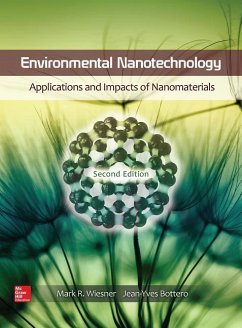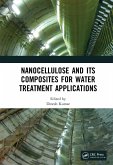Publisher's Note: Products purchased from Third Party sellers are not guaranteed by the publisher for quality, authenticity, or access to any online entitlements included with the product. The groundbreaking text on the impact of nanomaterials on the environment - completely updated to reflect the latest breakthroughs and developments Co-written by a team of leading experts from around the world, Environmental Nanotechnology provides a thorough look at nanomaterial technologies, their use in engineering applications, and their effect on the environment. The Second Edition expertly addresses the rapid and extensive developments that have taken place in this area over the past decade. Since the release of the first edition, much more has been learned about the impact of nanomaterials on organisms and ecosystems. Methods have been developed where there were few accepted procedures in the past. Thinking has evolved to consider the life cycle effects of nanomaterial production, and tools for risk forecasting are now under development. The Second Edition of Environmental Nanotechnology has been extensively updated and revised to capture these cutting-edge advances in all-new chapters that include Ecotoxicology Principles for Manufactured Nanomaterials, Nanomaterials in Ecosystems, Risk Forecasting and Life-Cycle Considerations, and Nanotechnology Governance for Sustainable Science and Policy. Sections Include: . Overview (Nanotechnology and the Environment) . Principles and Methods . Environmental Applications of Nanomaterials . Environmental Implications Environmental Nanotechnology will prove invaluable in helping to address the challenges associated with meeting society's needs for energy and materials in an environmentally responsible fashion.
Hinweis: Dieser Artikel kann nur an eine deutsche Lieferadresse ausgeliefert werden.
Hinweis: Dieser Artikel kann nur an eine deutsche Lieferadresse ausgeliefert werden.







